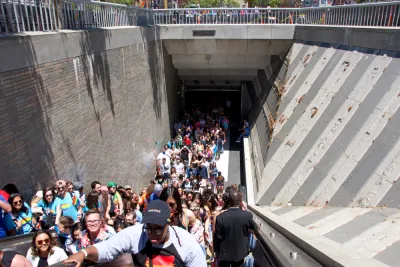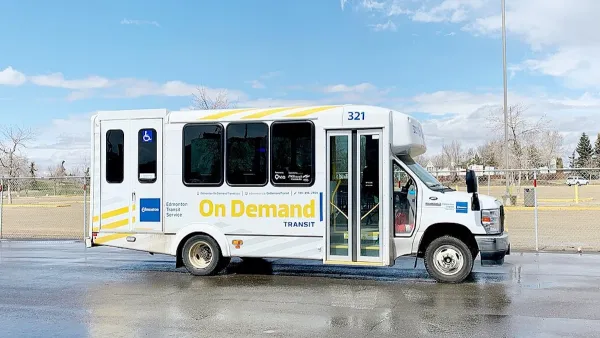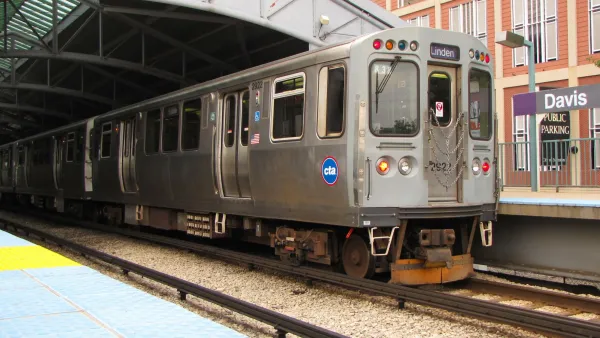With commuter ridership playing a smaller role in transit operations, agencies must reorganize their services around different travel schedules and patterns.

Writing in Governing, Skip Descant assesses how U.S. mass transit systems, which historically relied largely on commuter travel for the bulk of their ridership revenue, can adapt to new ridership patterns and adjust their services to serve new needs.
For transit agencies in Washington, D.C., where 66 percent of commuters now work from home at least part time, this is now an existential question. “Ridership on Metro, the network of trains and buses serving the nation’s capital, during the first six months of this year was down 64 percent compared to the same six-month period in 2019, according to the American Public Transportation Association (APTA).”
Some of the ways agencies are addressing these challenges: focusing on system reliability; removing friction points for users; launching more mobility options, like small shuttles linking restaurants and attractions; providing on-demand microtransit; and more focus on the first-mile/last-mile obstacles.
Transportation experts say agencies must rethink their service schedules, make it easier to access transit and make connections between systems, and focus on “transit planning that accommodates all of the other non-work trips we take — errand running, trips to schools and doctor’s appointments.”
FULL STORY: Commuter Ridership Is Disappearing. Can Mass Transit Adapt?

Analysis: Cybertruck Fatality Rate Far Exceeds That of Ford Pinto
The Tesla Cybertruck was recalled seven times last year.

National Parks Layoffs Will Cause Communities to Lose Billions
Thousands of essential park workers were laid off this week, just before the busy spring break season.

Retro-silient?: America’s First “Eco-burb,” The Woodlands Turns 50
A master-planned community north of Houston offers lessons on green infrastructure and resilient design, but falls short of its founder’s lofty affordability and walkability goals.

Test News Post 1
This is a summary

Analysis: Cybertruck Fatality Rate Far Exceeds That of Ford Pinto
The Tesla Cybertruck was recalled seven times last year.

Test News Headline 46
Test for the image on the front page.
Urban Design for Planners 1: Software Tools
This six-course series explores essential urban design concepts using open source software and equips planners with the tools they need to participate fully in the urban design process.
Planning for Universal Design
Learn the tools for implementing Universal Design in planning regulations.
EMC Planning Group, Inc.
Planetizen
Planetizen
Mpact (formerly Rail~Volution)
Great Falls Development Authority, Inc.
HUDs Office of Policy Development and Research
NYU Wagner Graduate School of Public Service



























